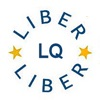Evaluation as a Tool for Developing the Quality of Academic Libraries. Case Study at a Large and Traditional Research Oriented Scandinavian University
DOI:
https://doi.org/10.18352/lq.7860Abstract
The leaders of our universities will ask today if we offer those services that a top university requires and whether the proposed resources for the libraries are worth investing. Establishing the European Higher Education Area (EHEA) requires the establishing of quality systems. Quality assurance systems will be introduced throughout the entire European academic sector and will certainly have significant impact on the development of academic organizations. The collaborative effort to evaluate European universities is coordinated by ENQA, the European Association for Quality Assurance in Higher education (Standards, 2005). Most European countries have developed a national quality assurance system. The solutions of different countries can be divided into three different classes: 1) Auditing countries[1] (institutional audit, quality audit, evaluation of quality assurance systems, enhancement-led institutional review): England, Scotland, Ireland, France, Finland, 2) Accreditation[2]: Holland, Germany and 3) Combination or another system: Norway, Switzerland, Denmark, Sweden (Audits, 2006).Downloads
Download data is not yet available.

Published
2006-10-11
Issue
Section
Articles
License
Copyright (c) 2006 Kaisa Sinikara

This work is licensed under a Creative Commons Attribution 4.0 International License.
How to Cite
Sinikara, K. (2006). Evaluation as a Tool for Developing the Quality of Academic Libraries. Case Study at a Large and Traditional Research Oriented Scandinavian University. LIBER Quarterly: The Journal of the Association of European Research Libraries, 16(3-4). https://doi.org/10.18352/lq.7860





